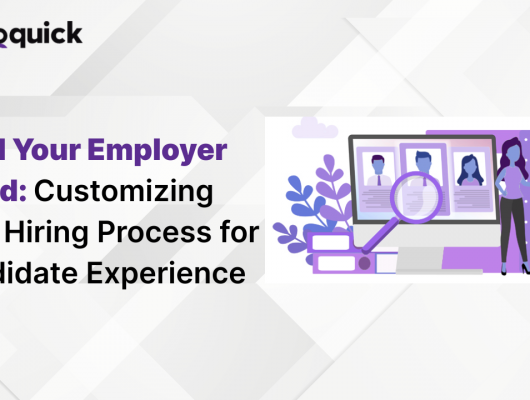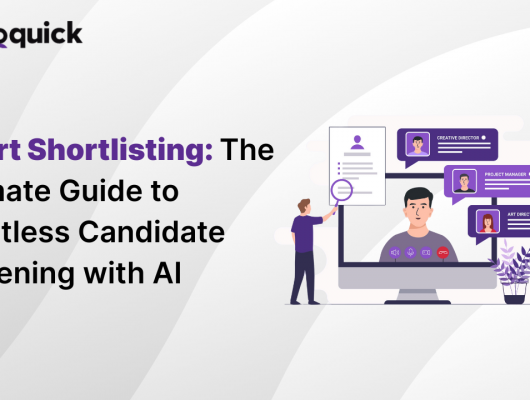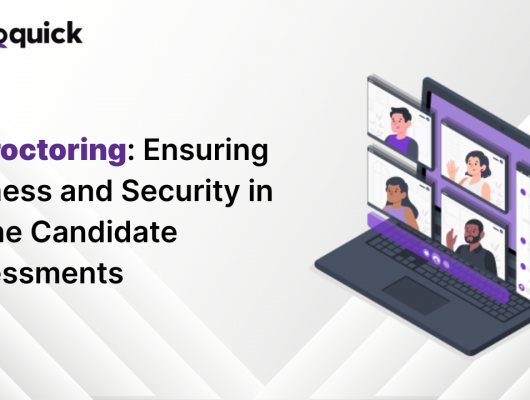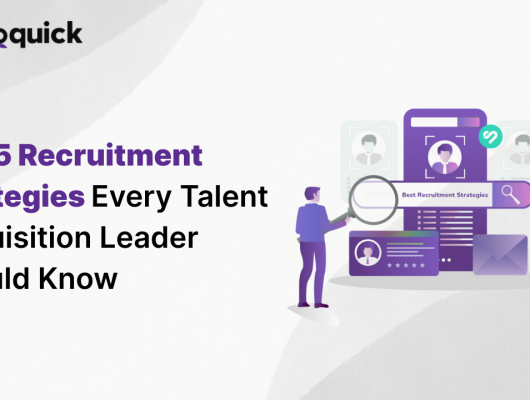Okay, let’s talk about hiring for a startup. It’s really something else, isn’t it? Totally different vibe than, say, a big established company. It feels like a high-stakes game, honestly, where getting the right people on board pretty much is what drives your growth and sparks all those great ideas. Getting the perfect team can genuinely make or break things. A really good hire? Boom, you’re accelerating. A bad one… well, that can just be absolutely devastating, can’t it? Startups just face these unique hurdles trying to find and actually land top talent. I mean, you really do have to keep an eye on what the market’s doing, all the little shifts, to even hope of putting together a decent recruitment strategy, let alone a perfect one.
It’s tough out there, you know? The competition for talent is pretty fierce. And startups, bless ’em, usually have pretty tight resources. We’re talking limited time, smaller budgets, and maybe not the biggest, most well-known brand name just yet. So, yeah, this guide… well, we tried to put together some really solid best practices for tackling startup hiring and talent acquisition, specifically looking ahead to 2025. The idea is really just to give you some of the insights and practical strategies you might need to actually build that winning team. And it’s not just me saying this, lots of research backs it up – like a study from SHRM pointed out, managing talent effectively really does make a huge difference to how a company performs.
So, looking specifically at 2025, getting hiring right in a startup? It definitely needs strategies that are, let’s say, a bit more up-to-date. I mean, the market’s always shifting, technology keeps changing everything, and honestly, what people expect from work is different now too. It’s really reshaping the whole talent landscape. This guide, then, tries to touch on the key stuff: planning your strategy, where to find people, making the process smoother, actually getting them to say yes, getting them started properly, and what trends we might see coming up. Basically, the goal is for you to come away knowing a bit more about how to attract, hire, and importantly, keep those really good people. That’s how you get an edge, right?
1. Why Startup Hiring is Different (And Why That Matters in 2025)
Okay, so why is startup hiring so… well, different? It genuinely operates by a completely different set of rules compared to hiring at a big, established company. Getting a handle on these differences? I’d say it’s absolutely crucial if you want to succeed here. Trying to just use those traditional, corporate-style hiring approaches? Yeah, they often just totally miss the mark, I think, in the fast-paced world of a startup.
So, what are these key differences that make it tricky? Here are a few things that really stand out:
- The Speed Imperative: Startups often need to hire pretty fast to jump on opportunities and just keep things moving. Delays? They can easily mean missed market windows.
- Resource Constraints: Startups usually have tight budgets and smaller, often overworked, HR teams. Finding efficient and cost-effective strategies is really critical.
- Brand Recognition Challenges: It’s tough sometimes competing against companies everyone already knows. Building a compelling employer brand? Essential for getting candidates to even notice you.
- Focus on Culture Fit & Adaptability: Hiring for potential and how someone will genuinely add to your culture is essential. Startups need people who can really thrive in a dynamic, ever-changing environment.
- Wearing Multiple Hats: New hires tend to need to be versatile and willing to take on diverse responsibilities. Being adaptable is often more important than being overly specialized.
- High Stakes: Every single hire has a pretty significant impact on the team and, well, everything the company does. Everyone really needs to contribute effectively.
2. Laying the Foundation: Crafting Your 2025 Startup Recruitment Strategy
Right, let’s talk about building the foundation, the strategy part. Honestly, having a really well-thought-out recruitment strategy? It’s kind of the absolute bedrock, isn’t it, for hiring well in a startup. This kind of strategic planning, it genuinely lays the groundwork for finding people efficiently and, you know, effectively. It just helps everything line up better with what the business is actually trying to achieve.
Defining Your Ideal Candidate Profile (ICP) – Beyond the Resume:
You’ve really got to look beyond just skills and experience listed on paper. Think about things like:
- Skills vs. Potential & Learnability: Maybe prioritize candidates who show they can really learn and adapt quickly.
- Culture Add vs. Culture Fit: Look for people who can genuinely enhance your existing culture with fresh perspectives or ideas.
- Long-Term Needs: Try to think about how the role might evolve as the company, hopefully, scales up.
Building an Authentic Employer Brand (Without a Huge Budget):
This is where you really need to show what makes your startup unique. How do you do that?
- Leverage Mission, Vision, and Values: Clearly communicate why your company exists and what you’re trying to achieve.
- Showcase Company Culture: Use social media, your website – whatever you can – to give an authentic picture of what it’s actually like to work there.
- Employee Testimonials and Founder Stories: Share personal stories; they can really highlight the people behind the brand in a relatable way.
- Transparency: Be open about both the exciting opportunities and maybe some of the challenges.
Strategic Workforce Planning for Growth:
You also need to be thinking ahead and planning for those future hiring needs:
- Forecast Hiring Needs: Base your hiring plans on major company milestones, like funding rounds or product launches.
- Prioritize Roles: Focus on hiring for the roles that will have the biggest impact on hitting company goals first.
- Build a Hiring Roadmap: Try to create a timeline for when you hope to fill key positions throughout 2025.
Setting Realistic Compensation & Equity Strategies:
Getting the offer right is key to attracting people, especially when competing with bigger companies:
- Understand Market Rates: Do your homework! Research salary benchmarks, especially for startups in your industry.
- Communicate the Value of Equity: Explain the potential long-term upside of equity ownership; it can be a huge draw.
- Creative Compensation Packages: Consider offering some unique benefits, perks, or maybe flexible work arrangements that might appeal.
3. Modern Talent Acquisition Channels for Startups in 2025
So, where do you actually find these amazing people? Well, you definitely need to be using channels that are, you know, more modern and targeted. Just sticking to the big, traditional job boards? Honestly, that’s probably not going to cut it anymore. Startups really need to get a bit creative and strategic about where and how they look.
Think Beyond the Major Job Boards:
- Niche Platforms: Focus on job boards and online communities that are specifically for your industry or the type of role you’re hiring for.
- Community Engagement: Get involved! Participate in relevant online and offline groups where potential candidates hang out.
Optimizing Your Career Page:
Make it look good and work well on phones. Clearly state your company values and give a real sense of what working there is like. It’s often the first place someone checks.
Okay, seriously, don’t underestimate Referrals:
They’re often gold.
- Employee Referral Program: Set up a program, maybe keep it simple and make sure employees know about it.
- Network Referrals: Encourage founders and early employees to tap into their own networks too.
Social Media Sourcing & Engagement:
Use platforms like LinkedIn or Twitter to connect with potential candidates. Sometimes just engaging with people before there’s even a specific opening can build relationships.
Emerging Trends & Channels for 2025:
What are we seeing?
- AI-driven sourcing tools seem to be getting more sophisticated.
- New platforms pop up; keep an eye out for ones relevant to your specific industry.
- The role of passive candidates might keep evolving.
| Channel | Description | Benefits for Startups |
|---|---|---|
| Niche Job Boards | Platforms focused on specific industries or roles. | More targeted reach, potentially higher quality candidates right away. |
| Community Engagement | Participating in online and offline groups. | Allows for direct interaction and relationship building with potential candidates. |
| Employee Referrals | Incentivizing employees to refer qualified candidates. | Can be very cost-effective, often leads to hires with higher retention rates. |
| Social Media | Using platforms like LinkedIn and Twitter for sourcing and connecting. | Provides a broad reach, good for brand building and informal connection. |
4. Streamlining the Application & Screening Process
Alright, let’s talk about making the application and screening process smoother. Honestly, a really streamlined process? It saves everyone time, which is precious, and it makes things so much better for the candidate experience. When you’ve got limited resources, and let’s be real, most startups do, having an efficient way to manage all those applications is just… crucial. It also helps make sure you’re really only moving forward with the candidates who seem like the best fit.
Writing job descriptions that people actually want to apply for:
They matter more than you think.
- Highlight the actual impact someone will have and the opportunity for growth.
- Make sure you’re using language that’s inclusive.
- Clearly outline what’s expected and who they’ll report to.
Okay, an ATS, is it essential? Yeah, I’d argue pretty much.
- Why spreadsheets fail: Managing applications in spreadsheets? It’s just not scalable or efficient once things pick up. Honestly, it becomes a nightmare.
- Benefits: using an Applicant Tracking System (ATS), or online hiring software, is pretty much essential. An ATS helps with organization, keeping communication clear, tracking data, and improving the overall candidate experience. Looking for features beneficial for startups: Find one that makes collaboration easy, lets you customize workflows a bit, and provides some basic reporting. An ATS like, let’s say, HireOquick, could potentially streamline this process with features like Custom Branding, Candidate Management, and maybe even AI-powered assessment generation.
How to actually screen resumes effectively for a startup:
Look for certain things.
- Look for signs of adaptability, relevant project experience, maybe little indications of initiative.
- Set clear criteria before you start screening.
Those first quick calls:
How to structure initial screening calls.
- Assess basic qualifications, figure out their motivation, and get an initial sense of culture alignment.
- Be clear about what the rest of the hiring process will look like.
5. Conducting High-Impact Interviews
Interviews, right? This is where you really get to dig in and see what someone’s like. Doing them well? Absolutely crucial for figuring out both someone’s skills and if they’ll be a good fit culturally. Having a structured process, honestly, helps a lot with minimizing bias and just making sure it’s a fair assessment. And getting the rest of the team involved? Yeah, that’s really important too.
How to structure your interviews so they actually work:
- Try to minimize bias by having standardized questions across candidates for the same role.
- Focus on asking behavioral and situational questions – how they would act or did act.
- Assign specific areas for each interviewer to focus on assessing.
Beyond skills: how to check for culture fit and teamwork:
This is key in a startup.
- Ask questions designed to gauge how they work in a team, their communication style, how they handle setbacks or pressure.
- Definitely involve potential team members in the interview process.
What about testing their actual skills?
Effective technical and practical assessments.
- Use relevant tests like coding challenges, case studies, portfolio reviews. If you do take-home assignments, maybe be thoughtful about the time commitment you’re asking for.
- Make sure whatever assessment you use is actually relevant to the job they’d be doing.
And please, please, focus on the candidate experience:
It really does matter.
- Keep communication clear and frequent throughout the process.
- Provide feedback in a timely manner, even for candidates you aren’t moving forward with.
- Respect their time – they’re probably busy too!
6. Making the Offer and Closing the Deal
Okay, you’ve found someone great! Now comes the offer part. Putting together an offer that actually gets them to say ‘yes’? That’s absolutely essential for landing top talent. Startups, maybe more than anyone, really need to make sure they’re highlighting what’s special about joining them. It’s got to be more than just the salary, right? And communicating the vision, the big picture, the opportunities ahead? Yeah, that’s crucial.
- Make sure you’re super clear about the whole compensation package – salary, equity, benefits, any perks.
- Remember to really talk about those non-money perks too, like the culture, the potential impact they can have, learning opportunities, or flexibility.
- Okay, negotiations… be prepared for that. Try to be transparent, and really understand what’s most important to the candidate.
- And really, really sell the vision and the opportunity! Reinforce why joining this particular startup right now is a unique and exciting chance. Maybe get a founder or hiring manager to do some personalized outreach.
- Keep the momentum going. Stay in touch with the candidate from the moment they accept the offer until their start date.
7. Seamless Onboarding for Startup Success
So, they said yes! Great! But you’re not done yet. Onboarding is actually critical, seriously, for keeping those new hires and getting them properly integrated. Having a plan, even a pretty simple one, makes the transition so much smoother and really helps set them up to succeed. Plus, it just helps them feel like they belong, you know? Gets them engaged right away.
- Okay, putting together a simple, effective onboarding plan: Think about pre-boarding stuff (like paperwork, maybe a welcome email, getting a welcome kit ready), structuring their first day and week, and making sure they have all the tools and access they need set up.
- Getting them into the culture too: Make sure they meet the team, maybe organize some casual social activities. Take some time to explain company norms and how communication usually works here.
- And right from the start, set clear expectations and initial goals: Help them understand what success looks like in their first, say, 30, 60, and 90 days.
- Define their key responsibilities early on.
- Maybe assign them some initial project work.
- Schedule regular check-ins to offer feedback and support.
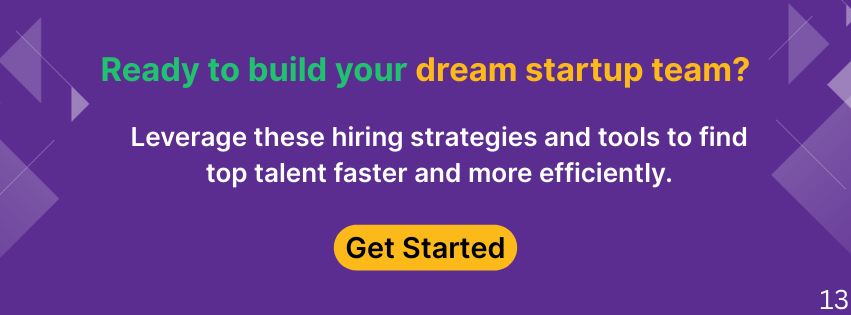
8. Measuring Success and Continuous Improvement
How do you know if any of this is actually working? You’ve got to measure things. Tracking key hiring metrics is just essential if you want to make your recruitment process better. Using data to make decisions, honestly, it really helps startups see where they can improve and just make their strategies sharper. Keeping an eye on things and getting feedback? Yep, totally crucial.
Some key things you’ll probably want to track include:
- Time-to-Hire (How long does it take?)
- Cost-per-Hire (What’s it actually costing us?)
- Quality of Hire (Are these hires performing well?)
- Candidate Satisfaction (What do candidates think of the process?)
Beyond just the numbers, don’t forget about feedback. Talk to candidates after interviews (even the ones you don’t hire, maybe), chat with the hiring teams during debriefs. Just keep using the data and feedback to tweak and improve what you’re doing.
9. Common Startup Hiring Pitfalls to Avoid in 2025
Okay, now let’s talk about the stuff that can go wrong. Seriously, avoiding some common pitfalls? It’s absolutely crucial for not making really costly hiring mistakes. These aren’t just minor oopsies; they can seriously mess with productivity, hit team morale, and just drag down how the company performs overall. Trying to prevent them before they happen? Essential, really.
Watch out for things like:
- Maybe you’re hiring out of pure desperation or panic.
- Not having a clear process or, maybe worse, nobody actually making decisions.
- Just plain poor communication with candidates.
- Seeing red flags and just… ignoring them.
- Not actually checking references properly.
- Letting unconscious bias creep in.
- Treating candidates inconsistently; not having a consistent experience for everyone.
10. Looking Ahead: Startup Hiring Trends in 2025 & Beyond
Okay, what’s next? Looking ahead to 2025 and beyond, it helps to have an idea of what trends are coming, right? Staying informed? Yeah, probably vital if you want to keep that competitive edge. These things we’re seeing? They’re really reshaping how talent works and affecting how startups, well, attract and keep people. Being ready to adapt? Definitely crucial.
Here are a few things that seem to be gaining momentum:
- The whole remote/hybrid work thing is probably going to keep evolving.
- Expect a bigger focus, I think, on Diversity, Equity, and Inclusion (DEI) in hiring.
- AI and automation? They’ll likely play a bigger role in screening, scheduling, stuff like that.
- Candidates are expecting different things now – flexibility, aligning with company values, chances to grow personally.
- You might see more companies shifting towards hiring based on actual skills, maybe less on just degree requirements.
FAQs
Q: What is the most important thing to consider when hiring for a startup?
A: I’d lean towards culture fit and adaptability. Startups really thrive when people can handle change and contribute positively to the team dynamic.
Q: How can startups compete with larger companies for talent?
A: By highlighting what makes them special – the chance for bigger impact, faster career growth, a more collaborative vibe. Those things can be incredibly appealing.
Q: How important is it to have an ATS for a startup?
A: Honestly, it’s pretty important. An ATS really helps manage applications smoothly, makes the candidate experience better, and lets you track how you’re doing with key metrics. Plus, some, like maybe HireOquick, are starting to use AI in interesting ways for things like assessments, which could boost your strategy.
Conclusion
So, bringing it all together… Hiring smart, efficiently, and really thinking about the candidate? It’s genuinely vital for a startup to grow. And look, this isn’t just a one-and-done thing; it’s an ongoing process. Part of that, I think, is building a really authentic brand – that’s how you get great people interested. Just remember, putting effort into this whole strategy? It’s an investment, for sure, but one that really can set you up with an incredible team, not just for 2025, but for the future too.

